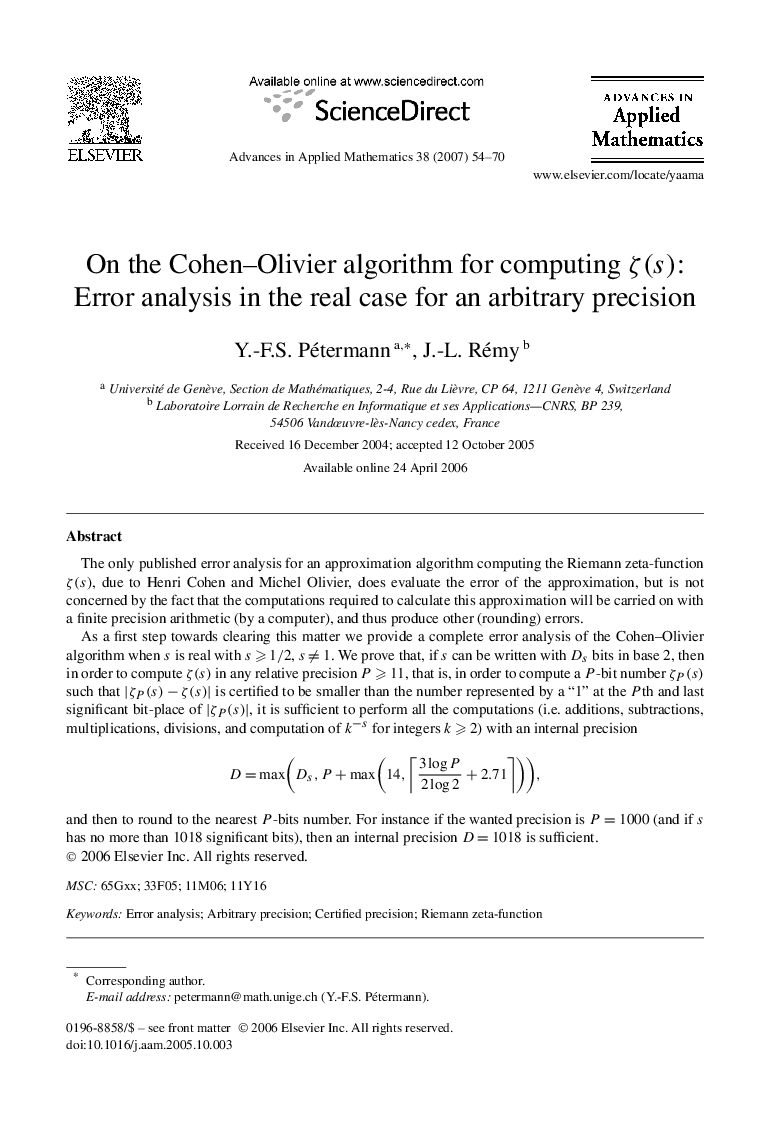| Article ID | Journal | Published Year | Pages | File Type |
|---|---|---|---|---|
| 4625303 | Advances in Applied Mathematics | 2007 | 17 Pages |
The only published error analysis for an approximation algorithm computing the Riemann zeta-function ζ(s)ζ(s), due to Henri Cohen and Michel Olivier, does evaluate the error of the approximation, but is not concerned by the fact that the computations required to calculate this approximation will be carried on with a finite precision arithmetic (by a computer), and thus produce other (rounding) errors.As a first step towards clearing this matter we provide a complete error analysis of the Cohen–Olivier algorithm when s is real with s⩾1/2s⩾1/2, s≠1s≠1. We prove that, if s can be written with DsDs bits in base 2, then in order to compute ζ(s)ζ(s) in any relative precision P⩾11P⩾11, that is, in order to compute a P -bit number ζP(s)ζP(s) such that |ζP(s)−ζ(s)||ζP(s)−ζ(s)| is certified to be smaller than the number represented by a “1” at the P th and last significant bit-place of |ζP(s)||ζP(s)|, it is sufficient to perform all the computations (i.e. additions, subtractions, multiplications, divisions, and computation of k−sk−s for integers k⩾2k⩾2) with an internal precisionD=max(Ds,P+max(14,⌈3logP2log2+2.71⌉)), and then to round to the nearest P -bits number. For instance if the wanted precision is P=1000P=1000 (and if s has no more than 1018 significant bits), then an internal precision D=1018D=1018 is sufficient.
